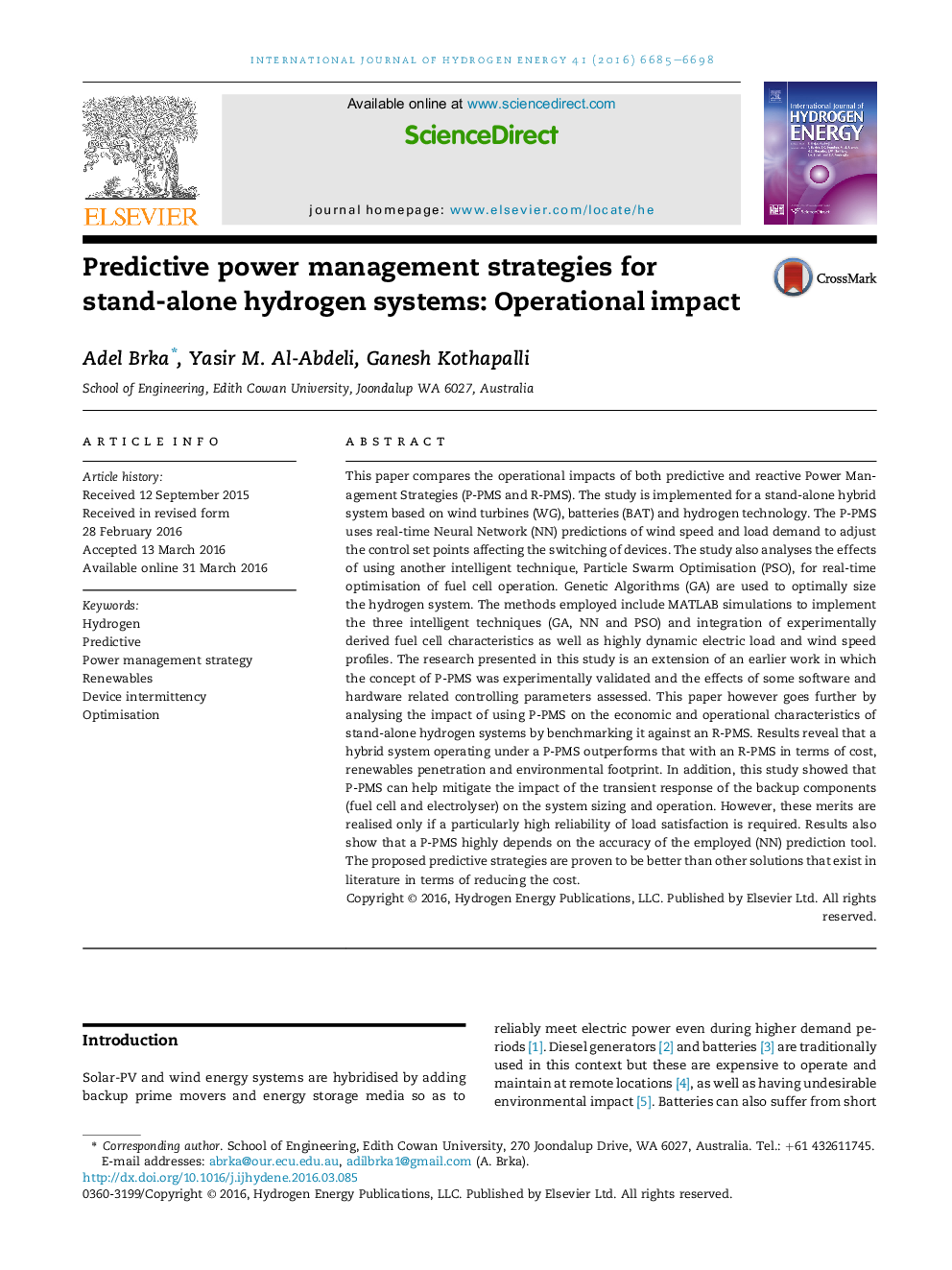| Article ID | Journal | Published Year | Pages | File Type |
|---|---|---|---|---|
| 1270674 | International Journal of Hydrogen Energy | 2016 | 14 Pages |
•Comparison of reactive and predictive Power Management Strategies for hydrogen systems.•The effects of device transient start-ups and NN prediction accuracy are studied.•Operational impacts analysed: $/kW-hr, CO2, excess/dumped energy, device intermittency.•The P-PMS outperforms the R-PMS particularly if high load meeting reliability is desired.•The proposed P-PMS outperforms other solution in literature in terms of system cost.
This paper compares the operational impacts of both predictive and reactive Power Management Strategies (P-PMS and R-PMS). The study is implemented for a stand-alone hybrid system based on wind turbines (WG), batteries (BAT) and hydrogen technology. The P-PMS uses real-time Neural Network (NN) predictions of wind speed and load demand to adjust the control set points affecting the switching of devices. The study also analyses the effects of using another intelligent technique, Particle Swarm Optimisation (PSO), for real-time optimisation of fuel cell operation. Genetic Algorithms (GA) are used to optimally size the hydrogen system. The methods employed include MATLAB simulations to implement the three intelligent techniques (GA, NN and PSO) and integration of experimentally derived fuel cell characteristics as well as highly dynamic electric load and wind speed profiles. The research presented in this study is an extension of an earlier work in which the concept of P-PMS was experimentally validated and the effects of some software and hardware related controlling parameters assessed. This paper however goes further by analysing the impact of using P-PMS on the economic and operational characteristics of stand-alone hydrogen systems by benchmarking it against an R-PMS. Results reveal that a hybrid system operating under a P-PMS outperforms that with an R-PMS in terms of cost, renewables penetration and environmental footprint. In addition, this study showed that P-PMS can help mitigate the impact of the transient response of the backup components (fuel cell and electrolyser) on the system sizing and operation. However, these merits are realised only if a particularly high reliability of load satisfaction is required. Results also show that a P-PMS highly depends on the accuracy of the employed (NN) prediction tool. The proposed predictive strategies are proven to be better than other solutions that exist in literature in terms of reducing the cost.
